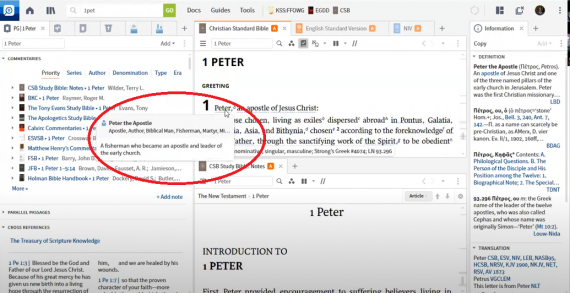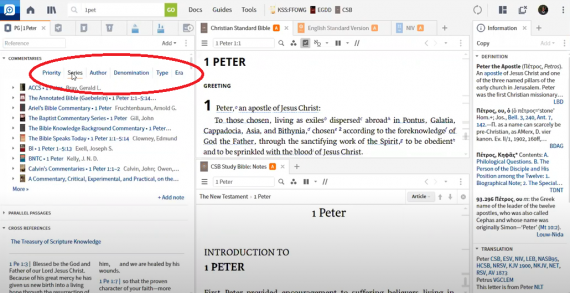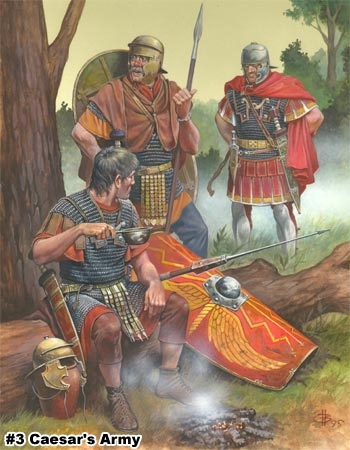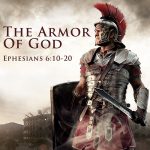Outline for Ephesians 4:20-24
-
- You don’t learn Christ by sinning (Ephesians 4:20-21)
- You learn Christ by: (Ephesians 4:22-24)
- Put off the Old (Ephesians 4:22)
- Renew the Spirit of Your Mind (Ephesians 4:23)
- Put on the New (Ephesians 4:24)
- Put off the Old (Ephesians 4:22)
 A few years ago, I watched on television an edited version of a movie called “Trading Places.” It starred Dan Ackroyd and Eddie Murphy. Ackroyd was a rich business executive stockbroker, and Murphy was a recently arrested con-artist. Dan Ackroyd worked for two old men who decided to do a little experiment on the age-old question of nature versus nurture, or genetics versus environment. Is a person they way they are because of their genetic make-up, or because of the environment they live in?
A few years ago, I watched on television an edited version of a movie called “Trading Places.” It starred Dan Ackroyd and Eddie Murphy. Ackroyd was a rich business executive stockbroker, and Murphy was a recently arrested con-artist. Dan Ackroyd worked for two old men who decided to do a little experiment on the age-old question of nature versus nurture, or genetics versus environment. Is a person they way they are because of their genetic make-up, or because of the environment they live in?
So they decided to trade Ackroyd’s life for Murphy’s without the two of them knowing it. If I remember correctly, Murphy got all of Ackroyd’s money and cars and houses and job while Ackroyd was stripped of everything and put out on the street.
In the movie, it was amazing to watch the change. Ackroyd, not able to access any of his bank accounts or get into his house or go to his job—thought he was going insane and even become somewhat of a criminal. Murphy, on the other hand, became a distinguished gentleman and changed his lifestyle and language and everything about himself.
Now, near the end of the movie, Murphy and Ackroyd discover the bet these two old men had made, and together, conspire to financially ruin the two men—which they are able to do through buying and selling futures in lima beans or something silly like that.
These two men changed their lifestyles because their environment had changed. And among the things that had been changed were their clothes – what they wear. And we’ve all heard the saying that “The clothes make the man.” This was true in the movie, and surprisingly, it is spiritually true for the Christian.
As we work our way through the book of Ephesians, we find ourselves in a section where we are commanded to walk in purity. To be holy. To live a clean life. In Ephesians 4:20-24, Paul tells us to do this simply by changing our clothes. He says in this section that we didn’t learn about Christ by sinning, and so we won’t continue to learn Christ by sinning either. We only learn about Christ as we put off the old way of living, the old clothes of sin and works righteousness, and put on the new clothes of Christ’s righteousness.
I. Learn from Christ (Ephesians 4:20-21)
Ephesians 4:20. But you have not so learned Christ,
The word But points us back to what we saw previously in Ephesians 4:17-19. In those verses, Paul lays out a picture of how all Gentiles are futile in their thinking and totally separated from the life of God because of how ignorant and sinful they are.
And we saw in our study of those verses, that although we are tempted to nod our heads in agreement at how sinful and evil “those people” are, Paul was actually laying a trap for his readers. The description was not so much about other people, but about you and me.
It is true that having a futile mind is the primary problem with humanity, but as Paul continues to reveal, the problem can only be solved when you and I take responsibility for our own futile ways and start living in godly ways instead. The problem is not with “them” but with you and me, and the sooner each of us takes responsibility for our own mindset, the better off the world will be. The world changes one person at a time, and the only person I can change is me. The only person you can change is you. So start with you.
Paul tells us how in Ephesians 4:20-24.
He says first, of all, in Ephesians 4:20, that you have not so learned Christ. In other words, you do not learn about Christ from the sin which sprouts from a futile mind.
It may seem rather obvious, but we do not learn about Christ by remaining ignorant and foolish in our thinking.
Of course, maybe it’s not as obvious as it seems, because there are many Christians who seem content to remain uneducated about the things of God, the ways of Christ, or the teachings of Scripture. They became a Christian, and that’s good enough for them.
The whole point of Christianity is not just to become a Christian so we can gain eternal life, but so that we can become a disciple and start living the abundant life that God wants for us. And for that to occur, we have to learn. We have to think. We have to take steps to change things in our life.
And that is what Paul is talking about here. He is talking about setting on the path of discipleship. He is talking about learning about Christ in the school of Christ.

There are some who look at this phrase in verse 20 and think it refers to becoming a Christian in the first place. One famous pastor, for example, says, “To learn Christ is to be saved” (MacArthur, Ephesians). But this is not true at all. The Greek word here is the verb emathete, which everywhere in Scripture refers to learning truth so that it can be applied and obeyed. Even the noun form of the word, mathetes, means “disciple” which we all know is someone who learns and obeys. To learn Christ does not refer to becoming a Christian but to developing in your personal relationship with Christ as a Christian (cf. Wiersbe, 40).
You do not gain eternal life by learning about Jesus Christ. You gain eternal life by believing in Jesus for it (John 3:16; 5:24; 6:47). But after you believe, Jesus calls you to follow Him on the path of discipleship. Of mathetes. This is accomplished by learning more about Jesus and discovering ways to change your life so that you can become who He wants you to be.
The rest of this passage explains a bit more on how to do this, on how to learn Christ through discipleship.
Ephesians 4:21. … if indeed you have heard Him and have been taught by Him, as the truth is in Jesus:
The word if here doesn’t mean Paul is questioning whether they had heard Christ and had been taught by Him. It is a first class conditional sentence, which means that Paul is assuming the truth of it. He is saying, Since or Because you have heard Him and have been taught by Him.
But this terminology is quite odd. Paul reminds the Ephesians Christians that they have heard Christ and been taught by Him. This is not physically or literally possible. None of these Ephesians Gentile Christians would have been present in Israel when Jesus lived or taught. None of them would have seen Jesus in person perform His miracles, teach His parables, or listen to His Sermon on the Mount or any of His other teachings.
So how is it that Paul can remind the Ephesians Christians that they heard Him and were taught by Him? These phrases cannot refer to hearing the physical voice of Jesus while he was on this earth, because there is no way that all of these Christians to whom Paul was writing could have heard Jesus speak. They were separated from Jesus by time and geographical distance.
Many Bible scholars agree that what Paul might be saying here is that when they heard the Word of God proclaimed to them, they were hearing Christ. The Bible is the written Word of God. And according to the Gospel of John, Jesus is The Word, the physical manifestation of God and God’s teachings here on earth. So, when you read and study the truth of God’s Word, you are hearing Christ and being taught by Christ. So if this view is correct, then Paul is just using a figure of speech to say that when people read the Bible or hear a sermon, they are sort of hearing Jesus speak through the Bible or through the sermon. As John Stott writes, “When sound Biblical … instruction is being given, it may be said that Christ is teaching about Christ” (Stott, 179).
And while this is true, the terminology Paul uses here seems to be a lot more intimate than that. I feel that there is a vast difference between actually hearing Jesus versus just reading about Him in Scripture. There is something vastly more intimate and personal with being taught by Jesus than with hearing a sermon in which some pastor teaches about Jesus.
 I mean, if you could hear Jesus and be taught by Jesus, wouldn’t that be better than hearing me talk about Jesus?
I mean, if you could hear Jesus and be taught by Jesus, wouldn’t that be better than hearing me talk about Jesus?
Of course! But it’s not possible, right?
Well, don’t be so sure. The terminology Paul uses here is so strange and odd that almost all studies of Ephesians comment on it, but few really know what Paul is talking about, and go to great lengths to try to explain the phrases away, so that Paul is just talking about reading your Bible and listening to sermons.
But what if Paul is saying exactly what he means? What if there was a way to hear Jesus and be taught by Him? Paul seems to indicate that there is, and that the Ephesian Christians were doing it. In fact, some Bible scholars believe that there may have been a school in Ephesus where Christians practiced the spiritual art of learning to listen to the voice of Jesus and speak with Him.
Wouldn’t it be amazing if you could do that?
What if I told you that you could?
To be completely honest, I have become convinced that you and I can listen to the voice of Jesus and speak with Him. You and I can hear Jesus and be taught by Him.
In John 16, Jesus promises to send the Holy Spirit to His disciples, and He explains some of what the Holy Spirit will do. Among other things, Jesus says, the Holy Spirit enables the disciples of Jesus to hear directly from Jesus. Jesus says in John 16:14, “He will glorify Me, for He will take of what is Mine and declare it to you.” This point is so important, Jesus repeats it in verse 15. It is not wrong, therefore, to think of the Holy Spirit as the inner voice of Jesus.
And I have become convinced over the last couple of years that Jesus wants to speak directly to each one of us through the indwelling Holy Spirit, which is the Spirit of Christ in us.
You and I can literally have a conversation with Jesus.
The way this happens is through literally having a conversation with Jesus in your spirit, in your mind. It feels a little bit like prayer, but rather than just you talking to God, you give space and room for Jesus to talk with you. You hold a conversation in your head with Jesus.
I wish I had included a chapter about this in my book What is Prayer? but I was not aware of this aspect of prayer yet. In that book, however, I did argue that prayer is simply having a conversation with God as though you were talking to a friend. And that is still true. What I failed to say in that book, however, is that a conversation is a two-way street. A conversation is not a monologue to a friend; it is a dialogue with a friend. And that is how prayer should be as well.
I have started to practice this conversational prayer this last year and have found it to be life transforming. I give room for Jesus to talk with me and teach me and I have found prayer to be much more thrilling, engaging, and enjoyable than ever before, because it is not longer just me talking into the void, hoping God in heaven hears and responds. No, now I am having an actual dialogue with Jesus.
I know this may sound a little “woo woo” to you. A little strange. Especially if you come from the same conservative Christian background I come from. If so, I want you to consider what Paul writes here in verse 21, what Jesus says in John 16, and also consider the fact that since Jesus is alive, and since Jesus loves us, and since Jesus sent His Spirit to indwell us, why would Jesus remain silent? He wouldn’t. He doesn’t. He wants to speak to you. He wants to teach you.
I wish I had time to say more about this. But I am still learning about it myself. All I can do is invite you to try it for yourself. Next time you are struggling with something, or have questions about a biblical text, or just want to talk with Jesus about anything, then do it. Just invite Jesus to talk with you and then listen for the inner dialogue. It’s that simple.
I should issue one warning. If you start trying to have a conversation with Jesus this way, your rational, scientific, critical mind will tell you that you are just having a conversation with yourself. That you are just making the whole thing up. I still struggle with these thoughts all the time. But in response to that, I will say this about my own personal experience: Jesus sometimes says things to me in our conversations that could never have come from my own head. Some of the things I have been taught could not have come from my own imagination.

Anyway, that is what I think Paul is referring to here. The Ephesian Christians had gone to school with Jesus. They heard Him. They spoke with Him. They were taught by Him. And Paul is reminding them of this fact.
And then at the end of Ephesians 4:21, Paul writes as the truth is in Jesus. Again, the grammar and terminology here is very strange, and if you look up various translations of Ephesians 4:21, you will see how scholars have struggled to understand what Paul is writing. In this way, the last part of verse 21 is an introductory statement for what follows. Paul is saying, “And here is the truth Jesus taught you.” So all of Ephesians 4:21 could be translated this way: “You heard from Jesus. You were taught by Him. And here is the truth that Jesus taught:”
Then in Ephesians 4:22-24, Paul summarizes that the Ephesians Christians had been taught by Jesus.
So let us look at these final three verses of this passage to see what Jesus taught to the Ephesian Christians.
II. What Jesus Taught (Ephesians 4:22-24)
Ephesians 4:22-24 form a short three-point chiasm. In verse 22, Paul writes that the Ephesians Christians were taught to put off the old man. The parallel statement is in verse 24, where Paul writes that the Ephesian Christians should put on the new man. The central statement of the chiasm is in verse 23, which Paul says that the Ephesians Christians are to be renewed in the spirit of their mind. Since this is the central statement of the chiasm, it helps explain the outer points. How does one put off the old man and put on the new man? Both are accomplished through the renewal of the mind.
Let us consider all three points. I will take the outer points first, and then look at the inner, central point in verse 23.
A. Put off the Old (Ephesians 4:22)
Ephesians 4:22. … that you put off, concerning your former conduct, the old man which grows corrupt according to the deceitful lusts,
The first thing Jesus teaches us to do is to put off … the old man.
The term used here for put off means to take off, or to strip off. It is frequently used of getting out of filthy clothes.
 Imagine yourself working in a manure pit on a hot summer day. It’s slippery so your fall occasionally into the manure, and it’s hot so everything—including yourself—stinks. When you get home, what’s the first thing you do? Do you go sit on the couch and grab a snack? No! You are filthy! The first thing you do is strip off those filthy clothes.
Imagine yourself working in a manure pit on a hot summer day. It’s slippery so your fall occasionally into the manure, and it’s hot so everything—including yourself—stinks. When you get home, what’s the first thing you do? Do you go sit on the couch and grab a snack? No! You are filthy! The first thing you do is strip off those filthy clothes.
That is what Jesus instructs us to do when we listen to Him. He shows us how to put off the filthy, stinking, rotting, corrupt parts of our old self. In Romans 7:24, Paul calls it the “body of death.” It’s a corpse that is strapped to our back.
The rotting old man is a symbol of spiritual and inner decay. It represents the shadow side of a person, that which is hidden, unrecognized, and undealt with. Jesus wants us to face it, bring it to light, and bring healing, renewal, restoration, and redemption to those areas that are in decline and decay.
When we talk with Jesus, He says, “Why are you carrying around that rotting corpse on your back? Let me help you get rid of it.”
That phrase at the end of Ephesians 4:22, where we read that the old man grows corrupt according to the deceitful lusts, refers to all the traits of ignorance and uncleanness that Paul listed in Ephesians 4:17-19. We talked about those previously, so I don’t need to go over them again.
But as a reminder, those negative traits in verses 17-19 are not about other people. They are about us. About you. About me. And many of us still have many of those traits. That is why Paul is writing this section in Ephesians. He wants to point out to his readers, which now includes you and me, that we still have many sinful habits of behavior and ignorant patterns of thought. And Jesus wants to change you. He wants to change me.
And when Jesus comes to talk with us, this is exactly what He does. When you seek to have a conversation with Jesus, you will know that you are just making it up if what you think is the voice of Jesus starts to condemn and accuse a bunch of other people, and points out all of their sins and faults and failures to you.
Jesus doesn’t do that. He works with you … on you. As you converse with Jesus, He will walk with you through the various rooms of your house and start pointing out the trash hidden in the closet. The cobwebs in the corner. The rooms that have locked doors which no one is allowed to see into. Jesus will work with you on your house. On your life. On your maturity. Not on someone else’s.
Jesus will point out to you where you are holding on the old man, the old self, with its deceitful lusts. And they are deceitful. I have had many arguments with Jesus about this. He points something out to me, and I say, “That’s not sinful. Why do you want me to change that?” And we get into a discussion about it. It can sometimes get heated … on my part anyway. Jesus is always patient.
You see, the old man is deceitful. It lies to us. It tells us certain things are okay to hold on to. But Jesus never lies. Jesus always speaks the truth to our heart, soul, and mind. And Jesus will point out the lies of the old man. Jesus wants to bring us to truth and light. And that is what He does. Step by step. Bit by bit. Piece by piece. Room by room. Out with the old. In with the new.
In fact, in with the new is what the parallel verse talks about in Ephesians 4:24. We still want to deal with the central verse in this chiasm in Ephesians 4:23, but let us first consider verse 24, since it is parallel to verse 22 that we just looked at.
A’. Put on the New (Ephesians 4:24)
Ephesians 4:24. … and that you put on the new man which was created according to God, in true righteousness and holiness.
Jesus does not just go through our life getting rid of the corrupt old man. He always replaces it with the new man.
When you listen to Jesus, He shows you which parts of your life need to go, but in the process, doesn’t just leave a hole or void there. He replaces it with something new. Old habits get replaced with new habits. Old patterns of thinking get replaced with new patterns.
Indeed, this is what repentance is all about. Lots of people think repentance is just turning from sin. But it isn’t. Repentance is a two-part process. It is a turning from sin and replacing that sin with something righteous.
One of the reasons so many people struggle with patterns and habits of sin in their life is because they fail to replace the sinful patterns and habits with a righteous pattern and habit. It is not enough to just take off the old man. You have to replace the old man with the new man.
If you spend certain time, energy, money, or resources engaging in a certain destructive practice, then when you seek to get rid of it, you should start using that same time, energy, money, or resources for something holy and righteous instead. Otherwise, the old habits see an empty room and just come right back in, usually stronger than ever before.
When we hear from Jesus and learn from Him, He shows us the sinful parts of our life that He wants to get rid of, and He also shows us the new parts He wants to add.
All of us do this every day in our regular lives. At the end of your work day, you don’t take off the dirty clothes, and then shower, and then put the old clothes back on. No. You take off the dirty clothes, take a shower, and then put on new, clean clothes.
And this new man, these new clothes, unlike the corrupt and deceitful old man, is described here in Ephesians 4:24 as being created according to God, in true righteousness and holiness.
Created according to God means that it is a new creation. Paul is not telling us to renovate or remake our old man into new man. He is telling us to put on a completely new and different man. We are not putting on old clothes after they have been washed and mended. We are getting a whole new wardrobe. A whole new set of clothing. A whole new man.
And this new creation is in true righteousness and holiness. Righteousness refers to how we interact in our relationships with other people. Holiness refers to how we interact in our relationship with God. These two words summarize the ten commandments.
When Jesus starts to point out to you the things He wants you to change, it will usually be in some sort of behavior toward God or some sort of behavior toward people.
It is a long process. It is a lifelong process. But Jesus is patient and walks with us through it all. When we enroll in the school of Christ, class is never over the teacher never gives up on us. He helps us get rid of the old and bring in the new.
B. Be Renewed (Ephesians 4:23)
Ephesians 4:23. … and be renewed in the spirit of your mind,
Now, we still have Ephesians 4:23 to consider. It is the central verse in the chiasm of Ephesians 4:22-24, and is, therefore, the main point.
Paul shows us that when we hear from Jesus and learn from Jesus, He helps us put off the old man and put on the new man by being renewed in the spirit of your mind.
The word spirit is a reference to the inner human spirit of a person. It’s not the Holy Spirit, because the Holy Spirit doesn’t need to be renewed. But our human spirit does. And one thing that Jesus does is renew the spirit of our mind. He does this, of course, through the indwelling Holy Spirit, so that, for the spiritual man, there is almost no difference between the human spirit and the Holy Spirit. The two become one.
Paul writes about something very similar over in Romans 12:1-2 where he says that we are transformed by the renewal of our mind. The concept of transformation there is the same idea found here of putting off the old man and putting on the new. Over there, however, Paul doesn’t mention the spirit of our mind. He just writes about the renewal of the mind.
From this, it seems, we can see that renewing the spirit of the mind is the same thing as renewing the mind.

What this means is that changing the way we live begins with changing the way we think. All change begins in the mind. With patterns of thoughts. With ideas.
What you know and what you think determines who you are and how you behave. Physically, you are what you do, but spiritually, you are what you think (Wiersbe, 40). That’s Biblical truth. Proverbs 23:7 says, “As a man thinks … so is he.” Your mind is not renewed simply by gaining knowledge, but by changing the way you think.
And this is why it is so important to enroll in the school of Jesus. Jesus teaches us a new way to think. Jesus shows us how to look at things differently. Jesus transforms our mind. Jesus helps us integrate things that need to be added to our thinking, and helps us get rid of damaging and destructive patterns of thought. Jesus can help us deal with thoughts about old trauma, and negative thoughts about who we are as a person. Jesus shows us different ways of interacting with temptations and addictions, and new ways of viewing other people.
This is why it is so important to get into conversations with Jesus, because the things that Jesus wants to point out to you is specifically for you alone. He will not say the same things in the same way to anyone else in the entire world.
Yes, it is important to read the Bible and hear other Christians teach about the Bible, as I am doing here. These are important because they show us the types of things that Jesus might say to us individually. But when Jesus really enters into a conversation with you, He will go much deeper and get much more specific than any Bible verse or Bible podcast can do. He will delve into the spirit of your mind in a way that no one else can.
Now, what sorts of things might Jesus say to you? What are some of the possible ways that Jesus would instruct you to put off the old and put on the new?
The rest of Ephesians 4 and 5 are all about some of the things Jesus will change in your life. In every example that follows, Paul tells people “Don’t do this … now instead do this.” These are examples of putting off the old and putting on the new (cf. Ephesians 4:25, 28, 29, 31-32; 5:3-4, 7-10, 11-13, 15-16, 17, 18-21).
And it is worth pointing out that you can’t make all of these changes all at once. These will take a lifetime of discipleship to Jesus. Putting off the old man doesn’t occur one time when you receive eternal life. You still have the old man hanging on in various ways in your life. Our job is to put on the new man by listening to Christ, learning from Christ, and renewing the spirits of our minds.

Conclusion
Do you want to change something in your life? Do you want to get rid of something from your old way of living? The way ahead is quite simple—it’s not easy—but it is simple—learn from Christ, hear Him and be taught by Him. Let Him walk with you through the house of your life to clean it up and turn it into what He wants. Your life will never been the same.
And as we do this, just like with Eddie Murphy and Dan Ackroyd, the clothes will make the man. As we put on the new man, as we renew our minds, we will become new men and women of God.









 Images in Notes
Images in Notes Commentaries guide section improvements
Commentaries guide section improvements
 I will be returning to publishing my Bible Studies and podcasts next week so you can learn the meaning of some tricky passages in Scripture. Hopefully these studies will continue to help you in your spiritual growth in 2020 the way they have for the past 20 years.
I will be returning to publishing my Bible Studies and podcasts next week so you can learn the meaning of some tricky passages in Scripture. Hopefully these studies will continue to help you in your spiritual growth in 2020 the way they have for the past 20 years. One of the courses is about
One of the courses is about 

 I read and study Scripture every day, not only for personal and spiritual growth, but also because I like to teach others what I have learned from the Bible.
I read and study Scripture every day, not only for personal and spiritual growth, but also because I like to teach others what I have learned from the Bible.

 But eternal life is not earned through good works; it is the free gift of God’s grace to anyone and everyone who simply and only believes in Jesus for it. The devil doesn’t want people to know this, and so he works tirelessly to confuse and confound the gospel message (
But eternal life is not earned through good works; it is the free gift of God’s grace to anyone and everyone who simply and only believes in Jesus for it. The devil doesn’t want people to know this, and so he works tirelessly to confuse and confound the gospel message (
 As such, much like a modern police officer might be disciplined by taking away his badge. Soldiers who were dishonorably discharged also had their belts taken away from them. There are records of soldiers who became Christians symbolizing their conversion in public by taking off their belts and throwing them away.
As such, much like a modern police officer might be disciplined by taking away his badge. Soldiers who were dishonorably discharged also had their belts taken away from them. There are records of soldiers who became Christians symbolizing their conversion in public by taking off their belts and throwing them away. But this was not the only purpose of the belt. The belt was also used to help carry the load of the heavy packs the soldiers wore while marching. When they marched, their packs could weigh 50-100 pounds, carrying their gear, food, and bedroll. This is a lot of weight to carry all on your shoulders during a ten or twenty mile hike, and so the Roman military devised a way to attach the packs to the belts of the soldiers. This kept the pack tight against the back so that it didn’t swing or bounce around while marching (which was often closer to a run), and it helped redistribute some of the weight of the back off of the shoulders and down onto the hips.
But this was not the only purpose of the belt. The belt was also used to help carry the load of the heavy packs the soldiers wore while marching. When they marched, their packs could weigh 50-100 pounds, carrying their gear, food, and bedroll. This is a lot of weight to carry all on your shoulders during a ten or twenty mile hike, and so the Roman military devised a way to attach the packs to the belts of the soldiers. This kept the pack tight against the back so that it didn’t swing or bounce around while marching (which was often closer to a run), and it helped redistribute some of the weight of the back off of the shoulders and down onto the hips. This is not to say that other people and various religions don’t have truth. They do. But Christianity has some of central truths that are not available anywhere else, and these truths are essential for understanding life, God, human culture, and what is needed to receive eternal life. These truths are all found through Jesus Christ and the revelation of the gospel.
This is not to say that other people and various religions don’t have truth. They do. But Christianity has some of central truths that are not available anywhere else, and these truths are essential for understanding life, God, human culture, and what is needed to receive eternal life. These truths are all found through Jesus Christ and the revelation of the gospel. For just as the Roman soldier wore his belt at all times, even when he was off duty, so also the Christian is never off duty. We are to continually live in light of the truth we have received from God. We should never let go of the truth. Just as it was shameful for a Roman soldier to have his belt taken away, so also, it is shameful for a Christian to deny the truth we have received from God.
For just as the Roman soldier wore his belt at all times, even when he was off duty, so also the Christian is never off duty. We are to continually live in light of the truth we have received from God. We should never let go of the truth. Just as it was shameful for a Roman soldier to have his belt taken away, so also, it is shameful for a Christian to deny the truth we have received from God. Some might object to this by saying that the belt of truth cannot refer to reading and studying the Word of God, because down in Ephesians 6:17, the sword of the Spirit is also identified as the Word of God. How can the belt of truth and the sword of the Spirit both be equated with the Word of God?
Some might object to this by saying that the belt of truth cannot refer to reading and studying the Word of God, because down in Ephesians 6:17, the sword of the Spirit is also identified as the Word of God. How can the belt of truth and the sword of the Spirit both be equated with the Word of God? So we must accept the Bible as the true word of God, as the primary authority on all matters about which it speaks. Only on this way do we put on the belt of truth.
So we must accept the Bible as the true word of God, as the primary authority on all matters about which it speaks. Only on this way do we put on the belt of truth.
